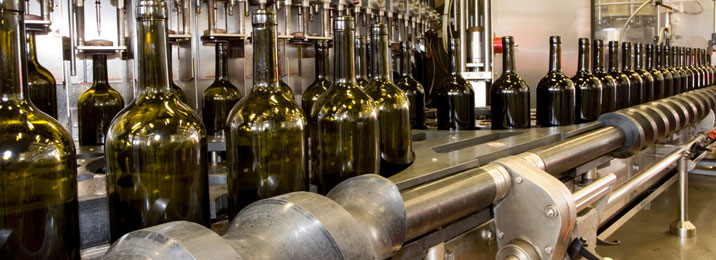The Ins And Outs Of Wine Bottling
Since starting his winery in 1983, Niels Udsen, owner of Castoro Cellars, has encouraged, supported and developed new systems for the expanding local wine industry. In 1989, he recognized the need for advanced bottling techniques and established the Castoro Bottling Company. Today, this thriving business boasts a fleet of five technologically-advanced mobile bottling lines that can produce up to 2,500 cases of wine per day.
What are the options a winery has when it comes time to bottle their wine?
A winery can choose to bottle on-site using their own in-house bottling line, they can take their wine off-site to a bottling facility, or they can use a mobile bottling service.
Why would a winery use a mobile bottling service over the other options?
In-house bottling line:
Installing and maintaining an in-house bottling line is very expensive and time-intensive. There are a lot of working parts that require the skills of experienced technicians. Plus, it takes up real estate within your winery.
Ultimately, it wouldn’t be cost-effective for a small winery to have an on-site bottling facility. For example, if you bottle 2,000 cases in a year, a mobile bottler can do that in a day or two. It’s hard to justify the investment in the labor and equipment costs of an in-house line for two days of bottling.
Off-site bottling facility:
Using an off-site bottling facility requires a winery to move their wine; every time you move your wine, you lose wine. Plus the wine gets sloshed around in the process.
It’s important to know that once you take the wine off-site for bottling, your label can no longer indicate that it was “Produced and bottled by John Doe Cellars at our location.”
For most wineries to maintain their “produced and bottled by” verbiage on their label, they have to bottle it at their facility. If they were to ship their wine to another location for bottling, then they would have to say something like, “Made and bottled by, or cellared and bottled by.” So the big plus of a mobile line is that it comes to the site where the wine is produced so the integrity of the label is maintained.
Plus, if they’re an estate winery and the wine leaves their premise to be bottled, it’s no longer estate. In most cases, smaller wineries want to extol the fact that they’re estate grown, hand-made and produced at that site.
What do I need to provide for the mobile bottling process?
Power: Most mobile bottlers require access to 480V, 3-phase, 60-amp or 240V 3-phase, 100-amp electrical power.
Space: Mobile bottle lines are driven on tractor-trailer trucks that require a large, level area.
Supplies: Besides defect-free corks, capsules, labels and cartons, you’ll need to provide new, sterile glass – preferably from a single manufacturer. Recycled bottles of varying lengths and diameters can cause damage to the bottling system, delaying your bottling.
Wine: Before the bottler arrives, you want to be sure to double-check the stability of your wine, SO2 levels and that the wine is at the correct temperature for bottling. It should be 60 degrees or warmer because the glue from your labels will not adhere to the bottles if they are cold or wet from condensation.
Additionally, you should have a forklift on hand and designate a supervisor to oversee the operation. Most mobile bottlers offer their own skilled labor, but you can also utilize your own staff.
Your mobile bottler should provide you with a list of requirements, from start to finish, that outlines what they’re responsible for, as well as what is expected of you.
What’s involved in the mobile bottling process?
Typically, the truck will drive up to the winery and hook into their power, their water and their wine. The winery will provide the bottling materials, and away we go. The automated process propels the empty bottles along a conveyer belt, filling, corking, sealing and boxing in the process. The case comes out the other end labeled and ready for sale.
Additional services can be employed during the bottling process. For example, we drip liquid nitrogen into the headspace to remove air (oxygen) for screw capping. Also, Velcorin is something we use to help kill yeast and bacteria in the wine.
What else do I need to know about mobile bottling?
Before signing on with any mobile bottler do your due diligence. Ask lots of questions including:
- How long have you been in business?
- Are your techs experienced?
- Do you require a deposit and is it refundable?
- How many hours will you work in a day?
- What are your filter charges?
Plan ahead! It’s preferable to schedule your mobile bottling at least three months in advance. During this time, prepare your materials based on the bottler’s specifications and how many cases you want to produce in a day.

